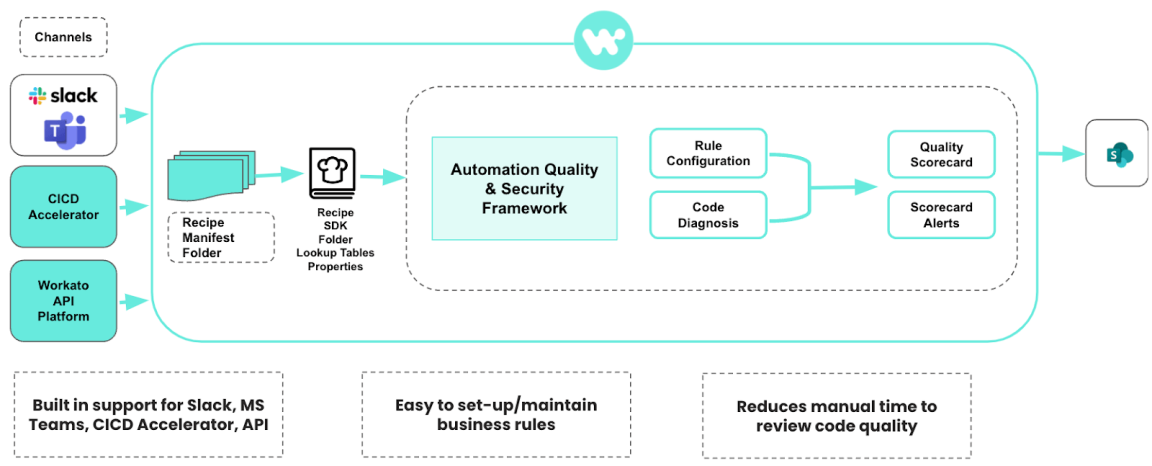
In today’s agile world, customers want to go to market as soon as possible with their product offerings. A delayed release can mean your competitors run ahead with a first-mover advantage. In order to reduce time to market, the customers should have the supporting structure to deploy new features faster in production. Quick and fast deployment can be achieved through CICD automation. However, CICD automation alone doesn’t guarantee the quality aspect of the product. Therefore, it becomes imperative to have some kind of mechanism in place to govern the quality of the product (not just from a functional point of view but also from best practices perspective).
The best practices can span across many design paradigms e.g. standards, conventions, security etc. Some of the key consequences of not automating quality and security checks are:
In the absence of an automated way to govern quality, the validation of the quality and security of the deliverables has to be done manually. Although this can be achieved, it can end up as a very time consuming exercise.
The problem gets aggravated in the case of large enterprises intending to democratize automations or achieve wall to wall automations, and as a result are enabling both business and IT teams to build more automations faster. In this case, it becomes almost impossible to manually do a sanity check on the quality of all the deliverables.
As a result, this could result in lack of governance which eventually could result in performance degradation, unwanted errors and poor customer experience over time.
Workato’s Automation Quality and Security accelerator provides a framework to standardize recipe development best practices and to report on the non-adherence of recipes/deployment packages with respect to the defined best practices.
Features include:
- Standardize Best Practices
- Rules Configuration
- Built in support for Slack
- Recipe Code Validation
- Quality Metrics Derivation
- Notifications
